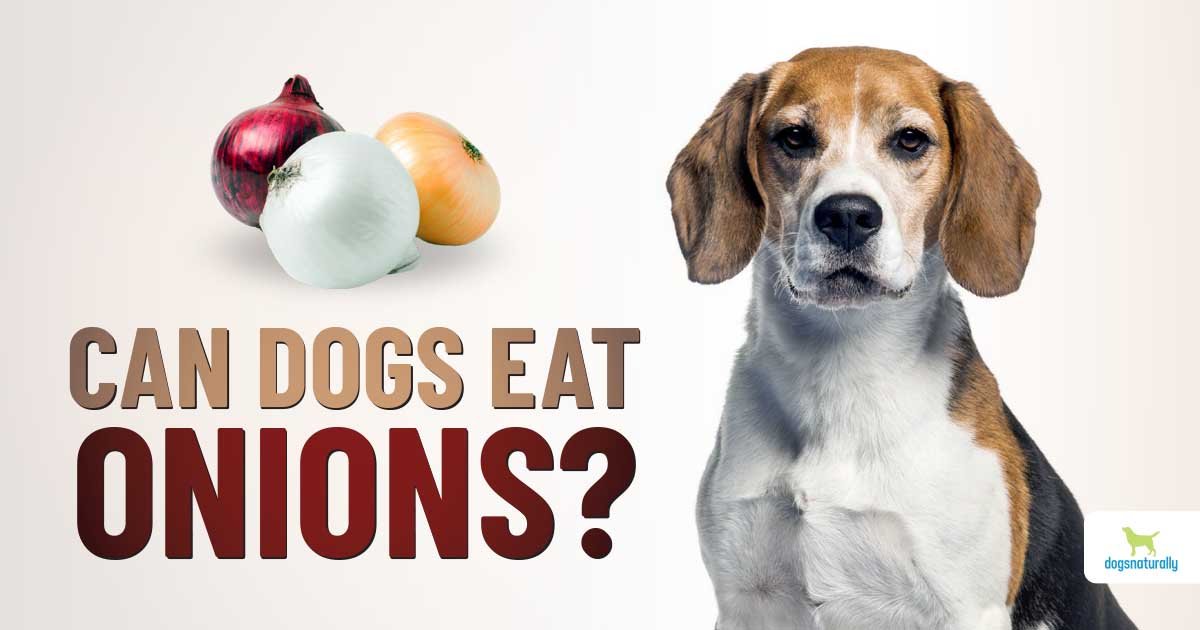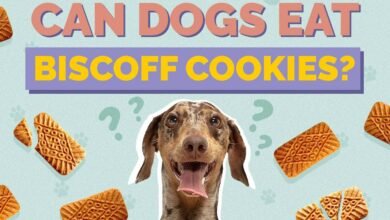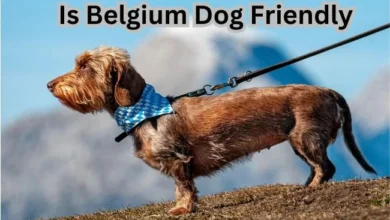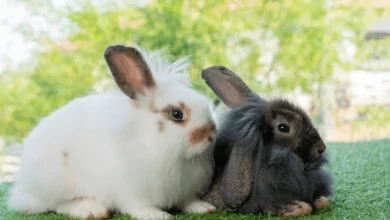
Hey there! Let’s talk about why onions are dangerous for dogs. The main issue is that onions contain a harmful compound called thiosulfate. While onions are a healthy addition to our diets, they can be toxic to our furry friends.
So, what’s up with thiosulfate? It’s harmless to us because we can break it down easily. But dogs can’t process it the same way. When they eat onions, the thiosulfate starts attacking their red blood cells.
This can lead to hemolytic anemia, where their red blood cells break down faster than they can be replaced. This condition affects their blood’s ability to carry oxygen, making them feel weak and tired. It’s super important to keep onions out of your dog’s diet to keep them safe and healthy!So let’s explore that- can dogs eat onions?
Recognizing Onion Poisoning Symptoms
Common Symptoms
Hey there! If your dog eats onions, you might notice some common symptoms pretty quickly. Here’s what to look out for:
- Vomiting: Your dog might throw up.
- Diarrhea: Loose stools are a common sign.
- Drooling: Increased saliva production.
Signs of Anemia
As onion toxicity progresses, it can lead to hemolytic anemia. This is when your dog’s red blood cells are damaged, and you might see:
- Pale Gums: Your dog’s gums may appear lighter than usual.
- Rapid Breathing: Your dog might breathe faster than normal.
- Weakness: Your dog may seem unusually weak and tired.
Behavioral Changes
Onion poisoning can also cause noticeable changes in your dog’s behavior. Watch for:
- Lethargy: Your dog might seem unusually tired and less active.
- Reduced Activity Levels: Your dog may not want to play or exercise as much as usual.
Recognizing these symptoms early can help you get your dog the care they need quickly. If you notice any of these signs, contact your vet right away to ensure your furry friend stays healthy and safe!
Different Forms of Onions and Their Risks
Raw Onions: The Highest Risk
Hey everyone! Raw onions pose the highest risk to dogs because they contain the most concentrated amount of thiosulfate, the compound that’s toxic to our furry friends. Even small amounts can cause serious health issues.
- Raw Onions: Highest risk due to concentrated thiosulfate.
- Cooked Onions: Still Toxic
Even though cooking changes the texture and flavor of onions, it doesn’t reduce the thiosulfate content. Cooked onions remain toxic to dogs and can still cause severe health problems.
Cooked Onions: Still toxic despite cooking.
Onion Powder and Other Processed Forms
Be extra cautious with onion powder and other processed forms of onions, which can be found in many foods like soups, sauces, and seasonings. These forms are just as dangerous and can be hidden in various dishes, making them an unexpected threat.
- Onion Powder: Hidden in many foods and equally harmful.
- Processed Forms: Found in soups, sauces, and seasonings, posing hidden dangers.
Understanding the risks associated with different forms of onions can help you keep your dog safe. Always check food labels and be vigilant about what your dog has access to, ensuring they stay healthy and happy!
What to Do If Your Dog Eats Onions
Immediate Steps
Hey everyone! If you find out your dog has eaten onions, it’s crucial to act quickly. Here’s what you should do right away:
- Remove Access: Immediately remove any remaining onions to prevent your dog from eating more.
- Assess the Situation: Try to determine how much and what type of onions your dog has consumed. This information will be helpful for your vet.
Importance of Contacting a Veterinarian Promptly
After taking these initial steps, contact your veterinarian as soon as possible. Onion toxicity can be serious, so it’s important to get professional advice even if your dog seems fine at the moment.
- Contact Vet: Call your vet immediately to explain the situation.
- Provide Details: Let the vet know how much and what type of onions your dog ate, and any symptoms you’ve noticed.
Potential Treatments
Your vet may recommend several treatments depending on the amount of onion ingested and your dog’s symptoms. Here are some common treatments:
- Induced Vomiting: If the onions were eaten recently, your vet might induce vomiting to remove them from your dog’s system.
- Activated Charcoal: This can help limit the absorption of toxins in the digestive tract.
- Supportive Care: In severe cases, your dog may need IV fluids, oxygen therapy, or even a blood transfusion to manage the effects of hemolytic anemia.
Acting quickly and getting professional help can make a big difference in your dog’s recovery. Always keep an eye on what your dog eats and reach out to your vet if you suspect onion ingestion. Keeping your furry friend safe and healthy is the top priority!
Safe and Nutritious Alternatives to Onions
List of Safe Vegetables and Fruits for Dogs
Hey everyone! If you’re looking for safe and nutritious alternatives to onions for your dog, here are some great options:
- Carrots: Crunchy and sweet.
- Green Beans: Fresh and crunchy.
- Sweet Potatoes: Soft and nutritious.
- Pumpkin: Excellent for digestion.
- Apples (without seeds): Crisp and juicy.
- Blueberries: Small and antioxidant-rich.
- Peas: Small and tasty.
Nutritional Benefits of Alternatives
These safe foods are not only delicious but also packed with nutritional benefits!
- Carrots: Great for vision and dental health, packed with beta-carotene and fiber.
- Green Beans: Low in calories, high in vitamins C and K, and a good source of fiber.
- Sweet Potatoes: Rich in vitamins A and C, fiber, and antioxidants.
- Pumpkin: High in fiber and vitamin A, excellent for digestion.
- Apples: High in fiber and vitamins A and C (make sure to remove the seeds).
- Blueberries: Rich in antioxidants, vitamins C and K.
- Peas: Good source of vitamins A, B, and K, as well as protein and fiber.
Recipe Ideas and Tips for Incorporating These Safe Foods
Introducing these safe vegetables and fruits into your dog’s diet can be easy and fun. Here are some tips and recipe ideas:
- As Treats: Use small pieces of carrots, green beans, or peas as healthy treats.
- Mixed in Meals: Add steamed or boiled sweet potatoes, pumpkin, or green beans to your dog’s regular food.
- Homemade Snacks: Make simple homemade treats using these vegetables and fruits. For example, bake sweet potato slices for a chewy snack or mix mashed pumpkin into their meals for added flavor and nutrition.
Here are a few simple recipe ideas:
- Carrot and Apple Bites: Mix grated carrots and apple slices for a crunchy treat.
- Sweet Potato Chews: Slice sweet potatoes and bake them for chewy snacks.
- Green Bean Mix: Steam green beans and mix them into your dog’s dinner.
- Pumpkin Puree: Mix a spoonful of pumpkin puree into your dog’s kibble for added flavor and fiber.
- Blueberry Frozen Treats: Blend blueberries with a bit of yogurt and freeze in ice cube trays for a refreshing treat.
By choosing these safe and nutritious alternatives, you can keep your dog healthy and happy while adding variety to their diet. Plus, they’ll love the tasty new treats!
Preventing Onion Toxicity: Tips for Pet Owners
Proper Storage of Onions and Onion-Containing Foods
Hey everyone! One of the best ways to prevent onion toxicity in dogs is by storing onions and onion-containing foods properly. Here are some tips:
- Store Securely: Keep onions in high cabinets or sealed containers where your dog can’t access them.
- Use Child-Proof Locks: Consider using child-proof locks on cabinets if your dog is particularly curious or clever.
- Keep Off Counters: Avoid leaving onions or onion-containing foods on countertops where your dog might reach them.
- Trash Management: Make sure your trash can is secure and can’t be easily knocked over by your dog.
Educating Household Members and Visitors
Educating everyone in your household about the dangers of feeding onions to dogs is crucial. This includes family members, friends, and visitors.
- Inform Family and Friends: Explain that onions are toxic to dogs and should never be given to them.
- Create Awareness: Post a reminder note in the kitchen or dining area to reinforce the message.
- Guest Education: Make sure visitors know not to give your dog any food without checking with you first.
Being Cautious with Table Scraps, Leftovers, and Packaged Foods
Many foods contain hidden onions, so it’s important to be cautious with table scraps, leftovers, and packaged foods.
- Check Ingredients: Always read the ingredients list before giving your dog any human food.
- Avoid Table Scraps: Be mindful of giving your dog table scraps, especially from dishes that might contain onions, such as soups, stews, and casseroles.
- Secure Leftovers: Store leftovers in sealed containers and out of reach to prevent your dog from getting into them.
By following these prevention tips and educating those around you, you can help prevent onion toxicity and keep your dog safe and healthy. Always stay vigilant and make sure everyone in your home understands the importance of keeping onions away from your furry friend!




